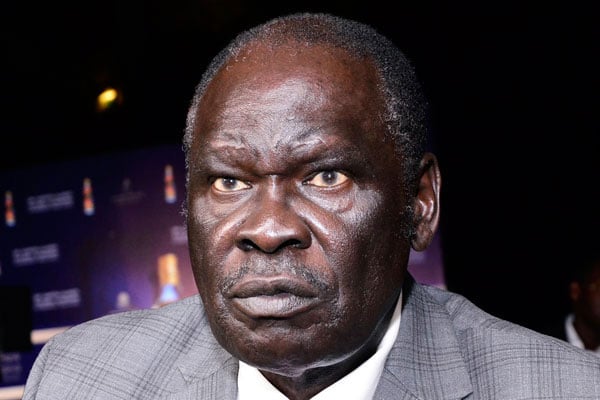Prime
Inorder to transform Karamoja, make Soroti City a metropolis

Joan Alobo Acom
What you need to know:
Expedite the process of reviving the agricultural cooperatives in Karamoja and the neighboring regions
The Daily Monitor on Tuesday, April 18, ran a big news story titled: “Minister asks public to find lasting solutions for Karamoja.” This plea from the Minister of Relief, Disaster Preparedness and Refugees, Mr Hilary Onek, was the only sobering concession coming from any minister in the NRM regime in the last three decades.
In all honesty, creating resilience, especially, strengthening the productive sector to increase household income and food security in Karamoja, has remained a receding reality that troubles many development partners and experts alike.
In fact, the Joint Resilience Strategy launched in January 2016 by the Food and Agriculture Organisation of the United Nations (FAO), the United Nations Children’s Fund (UNICEF) and the World Food Programme (WFP), seems to have registered little progress. This is largely because such interventions focus exclusively on a few selected districts from Karamoja region while ignoring the neighboring Teso sub-region.
As a people who value the right to self-determination, we need not take lightly this honest appeal from Hon. Onek. Knowing that our destiny is in our hands, and as a Member of Parliament for Soroti City, I have spent a couple of weeks engaging the creative thinkers from Teso and Karamoja sub-regions on this invitation from the minister.
Certainly, there seems to be consensus that for the Karimojong to be transformed, Soroti City must be made a metropolis. But what is a metropolis and why Soroti City? A metropolis is “a large city which is a significant economic, political, and cultural area for a country or region, and an important hub for regional or international connections, commerce, and communications.”
For several years, Karamoja has depended on Soroti City for essential social services, market for animal products and for water and pastures.
Thus, in response to the quasi-research question: “What should be done to transform Karamoja sub-region, I crystalized the responses into a-five-point programme as follows. Note that these ideas are open for cross-fertilization before they are presented in parliament and or shared with any development agency.
Firstly, the government should construct a modern road linking Soroti City – the North-eastern regional city of Uganda to Southern Ethiopia, through Northern Kenya. This is a critical first step because it would lead to increased trade between Uganda and Ethiopia, thus, opening up the much-needed market for agricultural products.
In 2018, President Museveni assured the country that this was already underway as his government was shopping for a company to construct this road. The Section from Soroti City to Moroto is already started and perhaps only requires another layer of asphalt and the removal of the destructive speed humps.
Secondly, it is imperative for the government to invest in irrigation development so as to promote commercial agriculture along the fertile land that surrounds Lake Opeta, Lake Bisina and Lake Kyoga in the greater Teso region. Karamoja’s biggest problem has been its vulnerability to drought. There is already a modern agricultural market and a value-addition facility in the heart of Soroti City to take care of the surplus produce for export to Kenya, Ethiopia and Southern Sudan.
Thirdly, revive the meat packers factory in Soroti City to take care of the livestock that the Karamojong and their neighbors have in abundance. Countless jobs will be created for the unemployed youth and even warriors in this factory.
Expedite the process of reviving the agricultural cooperatives in Karamoja and the neighboring regions. The Parish Development Model and the recent move to revive the Cooperative Bank, require vibrant primary cooperative societies to function.
Make Soroti University a conduit for socio-economic transformation of Teso and Karamoja regions. There are many models to adapt from the government of Japan on how to select the best brains to study selected rigorous programmes.
Ms Joan Acom Alobo is the Woman Member of Parliament for Soroti City. [email protected]




